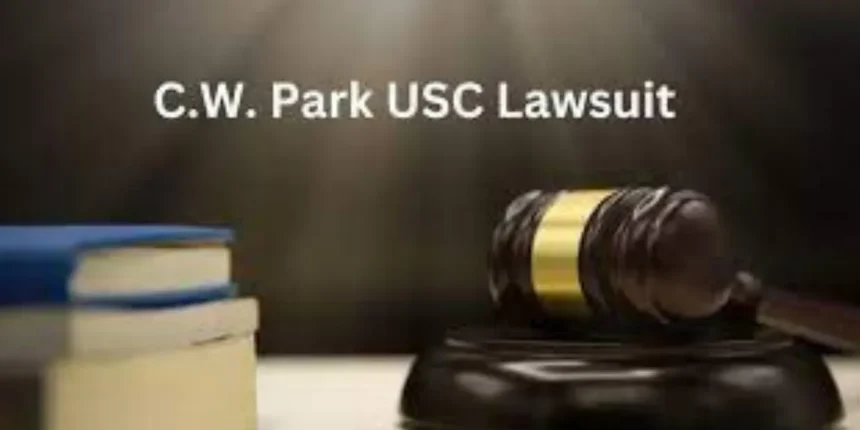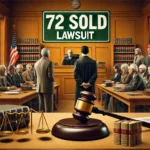Introduction to the C.W. Park USC Lawsuit
The C.W. Park USC lawsuit has taken the spotlight in legal and educational circles, stirring up discussions that go far beyond the courtroom. This case encapsulates a myriad of issues related to academic integrity, institutional responsibility, and student rights. As details unfold, many are left questioning what this means for not just the University of Southern California (USC), but also for higher education as a whole.
With its far-reaching implications, understanding this lawsuit is essential for students, educators, and anyone invested in the future of academic institutions. So let’s dive deeper into the background of this intriguing legal battle and explore its potential impact on both USC and beyond.
Background on C.W. Park USC Lawsuit
The C.W. Park USC lawsuit stems from significant allegations that have raised eyebrows across the nation. C.W. Park, a former student at the University of Southern California, has brought forth claims against the institution regarding its handling of critical issues affecting students.
This case isn’t just about one individual’s experience; it taps into broader concerns within higher education. The allegations highlight systemic problems that many universities face today, including inadequate support systems and response protocols for grievances.
Park’s situation reflects ongoing national conversations about accountability in educational institutions. As details unfold, they may shed light on how universities can better serve their communities while facing legal scrutiny. This lawsuit is not only about seeking justice for an individual but also aiming to spark necessary changes in college policies nationwide.
Details of the Lawsuit
The C.W. Park USC lawsuit centers around allegations of discrimination and misconduct within the university’s administrative framework. It claims that systemic issues have led to an unfair treatment of staff and faculty members.
In particular, Park points to specific instances where policies were allegedly enforced in a biased manner. These actions supposedly created a hostile environment for those who spoke out or opposed certain decisions.
Key documents submitted in court detail communications between administrators that may indicate awareness of these practices. Testimonies from former employees further support these assertions, highlighting a pattern of behavior detrimental to workplace morale.
The lawsuit seeks not only compensation but also significant reforms within USC’s governance structure. This case could potentially reshape how universities across the nation address similar allegations, making it one worth following closely.
Impact on USC and Higher Education
The C.W. Park USC lawsuit is poised to reshape the landscape of higher education. Its implications reach far beyond individual grievances, stirring conversations about accountability within universities.
USC could face significant reputational damage if the allegations hold merit. The case may prompt other institutions to reevaluate their policies and practices regarding student welfare and institutional transparency.
Moreover, this lawsuit shines a spotlight on systemic issues prevalent in many colleges. Increased scrutiny may lead to enhanced regulations or even legislative changes aimed at protecting students better.
As higher education grapples with trust deficits, this case serves as a catalyst for broader reform discussions across campuses nationwide. Stakeholders are watching closely, knowing that outcomes could influence future legal precedents in educational settings around the country.
Analysis of the Legal Issues Raised
The C.W. Park USC lawsuit raises significant legal questions about institutional accountability and student rights. Central to the case is whether universities can be held liable for actions that allegedly compromise a student’s safety and well-being.
Another key issue involves the interpretation of existing laws regarding civil rights within educational settings. Advocates argue that there may be gaps in protections offered to students, which could set a troubling precedent if not addressed.
The burden of proof will also play a crucial role in this litigation. Determining who bears responsibility for the incidents in question complicates matters further.
Additionally, the case highlights broader concerns about transparency in university governance. Stakeholders are eager to see how this lawsuit might reshape policies concerning student grievances and administrative oversight within higher education institutions across the country.
Response from C.W. Park USC Lawsuit
C.W. Park has been vocal about the motivations behind the lawsuit against USC. He believes that his case sheds light on systemic issues within higher education institutions.
Park’s legal team emphasizes transparency and accountability. They argue that universities must uphold ethical standards and prioritize student welfare.
In various interviews, Park expressed a desire for change rather than personal gain. He hopes this lawsuit will prompt discussions about policies affecting students’ rights.
Support from peers has also emerged since the filing of the case. Many have voiced their solidarity with Park, seeing him as a catalyst for essential reforms in college governance.
The response from USC remains closely monitored as developments unfold, showcasing how pivotal this case might be for future institutional practices in academia.
Potential Outcomes and Future Implications
The C.W. Park USC lawsuit could lead to several significant outcomes that extend beyond the courtroom. If the court sides with Park, it may prompt changes in university policies regarding student rights and institutional accountability.
Such a ruling might encourage other students to come forward with grievances, fostering an environment where transparency becomes paramount. This could push universities nationwide to reevaluate their procedures for handling similar cases.
On the flip side, if USC prevails, it might reinforce existing practices and discourage future lawsuits on comparable grounds. This outcome could create a chilling effect around reporting issues within academic institutions.
Furthermore, the case can serve as a crucial touchstone for discussions surrounding higher education reform. It highlights systemic issues that need attention and improvement across campuses everywhere. The implications stretch far into how educational institutions will approach their responsibilities towards students moving forward.
Conclusion
The C.W. Park USC lawsuit continues to generate significant discussion within legal and educational circles.
As the case unfolds, it reveals deeper issues regarding institutional responsibilities and accountability in higher education settings.
Many are watching closely to see how this will reshape policies at universities nationwide.
The outcome may set new precedents for future cases involving similar claims against educational institutions.
Stakeholders, from students to faculty members, are keenly aware of the implications this lawsuit holds for their rights and protections.
It also raises questions about the balance between administrative power and individual justice in academia.
With various potential outcomes on the horizon, one thing is certain: this case will remain a focal point for ongoing debates around ethics and governance in education.
FAQs
Understanding the ramifications of the C.W. Park USC lawsuit is essential for students, faculty, and stakeholders in higher education. This case brings to light various legal issues that can influence university policies and practices.
Q: What are the main allegations in the C.W. Park USC lawsuit?
A: The core allegations revolve around claims of discrimination and failure to provide a supportive academic environment for all students.
Q: How might this lawsuit affect other universities?
A: The outcome could set precedents that may inspire similar lawsuits at other institutions or lead to reforms in how universities handle complaints related to discrimination and student rights.
Q: What has been the response from USC regarding these allegations?
A: USC has issued statements emphasizing their commitment to diversity, equity, and inclusion while stating they will vigorously defend against these accusations.
Q: Are there financial implications for USC if they lose this case?
A: Yes, potential financial penalties could arise depending on court rulings. Additionally, reputational damage might impact enrollment numbers in future academic years.
Q: What are experts saying about the possible outcomes of this case?
A: Legal analysts suggest that a ruling favoring C.W. Park could trigger significant changes within university administrations nationwide regarding compliance with anti-discrimination laws.
As developments unfold in this high-profile case, it remains vital for those involved or affected by higher education policies to stay informed about its progress and implications.







